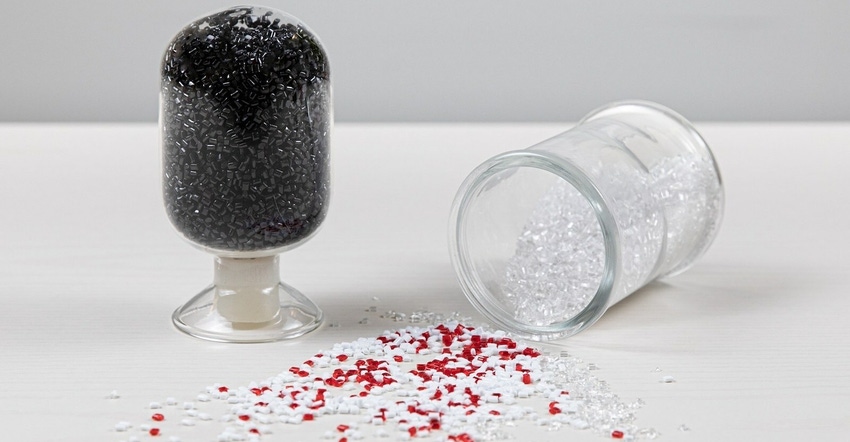Korea’s Samyang targets automobiles, appliances, laptops, medical devices, and building & construction with its latest UL-certified flame-retardant offering.
January 13, 2023

Samyang Corp. has developed Korea's first eco-friendly polycarbonate (PC) resin containing more than 90% post-consumer recycled (PCR) material. Transparent and resistant to impact and heat, PC is mainly used in interior and exterior components for automobiles, home appliances, soundproof walls, and medical device parts. The new grade is UL-rated at V-0.
Compounding recycled PC with virgin PC requires a high level of technology and expertise, according to Samyang. When manufacturing PC, flame retardants, reinforcing materials, and colorants are added to enhance the performance of the polymer and improve aesthetics. However, such additives cause adverse effects during the melting process at high temperature, weakening the physical properties of PC. For this reason, PCR PCs developed by other Korean companies contain a maximum of 85% of recycled PC material, according to Samyang, while the majority of PCR PCs on the market contain 30 to 50% of recycled PC material.
Within two years, Samyang succeeded in developing a PCR PC that contains more than 90% recycled PC content while retaining the inherent physical properties of PC, such as heat resistance, transparency, and impact resistance. This is enabled by optimizing the ratio of recycled material and additives during the compounding process. Securing suppliers of quality recycled PC material who closely monitor the degree of contamination and foreign substances was also paramount.
Samyang says that the newly developed PCR PC has the effect of reducing carbon dioxide emissions by about 6,200 tonnes based on production of 1,000 tonnes compared with fossil fuel-based PC. This is an equivalent amount of carbon dioxide emitted by 3,200 cars per year.
Samyang plans to first apply PCR PC to small electrical home appliances such as laptops, then expand its application extensively in various areas in the future, namely electronics and decorative applications. Meanwhile, the company plans to continue expanding the scope of applications by applying PCR PC to various plastic resins such as ABS and PBT.
"There are only a few places in the world that produce PCR PC products that contain more than 90% of recycled plastic materials while retaining the physical properties of conventional PC. We will continue to expand our high-quality, eco-friendly product portfolio to meet the global market's demand and contribute toward the group's ESG competitiveness," said Samyang CEO Hosung Kang.
Samyang Group established its mid- to long-term strategy last year, called Vision 2025, which pursues the growth of eco-friendly and specialty business. Since last July, Samyang has been producing and selling resins and compounded products of a newly developed eco-friendly transparent and flame-resistant PC that does not use flame retardants.
Last August, Samyang also signed a contract to supply plastic pellets made from recycled fishing nets, further expanding its eco-friendly business portfolio.
And, Samyang Innochem built a manufacturing facility last November at its Gunsan plant that is capable of producing 15,000 tons per year of isosorbide, an eco-friendly biomass material, thereby commencing its eco-friendly plastic business in earnest. Isosorbide has potential for the synthesis of polyurethanes, polyamides, and hardeners for epoxy resins.
You May Also Like


